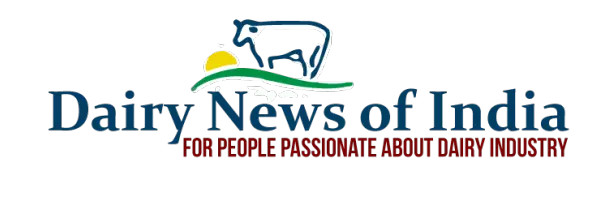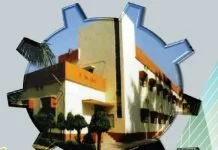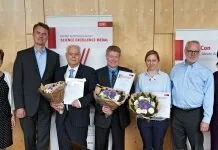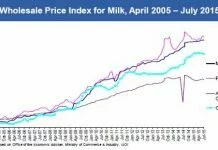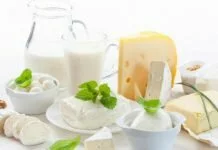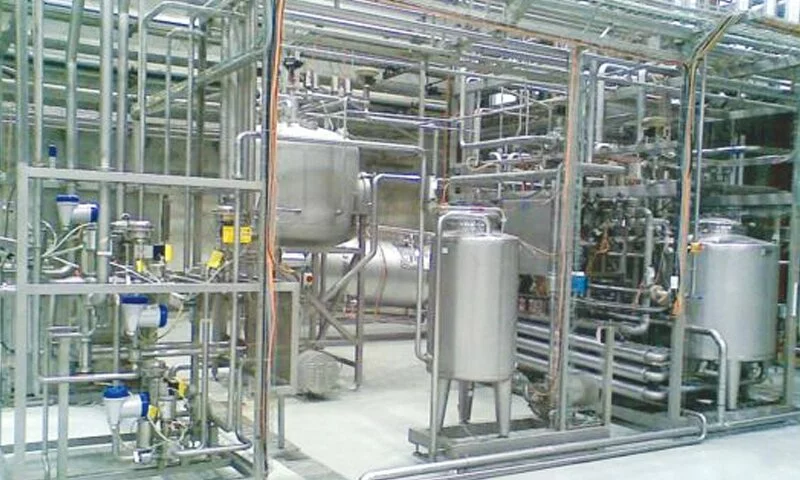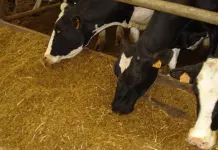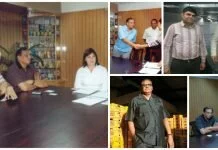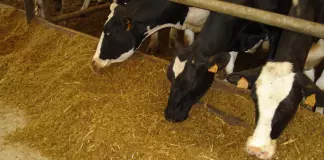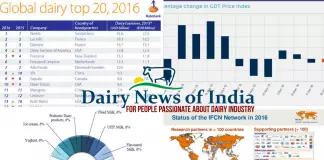Conference on second day of ICCS focuses on agriculture, food & retail
Lucy Fernandes and Shraddha Joshi, Mumbai
The conference on the second day of the India Cold Chain Show (ICCS) focused on such sectors as agriculture, food and retail, along with technical knowledge sharing on cold chain technologies, innovations and solutions.
The day started with panel discussion on cold chain innovation in the dairy industry.
P Prasad, group executive vice-president, Yes Bank Ltd, said, “There are many innovations taking place in dairy segment. Dairy is currently a key sector contributing to the temperature-controlled storage and transportation industry in India.”
“Dairy products constitute approximately 1.6 million metric tonnes within the storage segment, which accounts for 20 per cent of the volume of the multipurpose storage system in India. It also contributes to 25 per cent of the temperature-controlled transportation segment, amounting to Rs 3.8 billion,” he added.
Prasad stated, “On the occasion of ICCS, Yes Bank is pleased to present a knowledge report titled Innovation in Cold Chain: The Dairy Value Chain Perspective. It provides an in-depth overview of the Indian dairy market, dairy supply chain structure and key innovations in this space.”
Pankaj Mehta, country head and director, Carrier Transicold India, said, “India is the largest producer of milk and dairy products. Cold chain in the dairy sector are divided into two sectors – frozen and chilled.”
“Items like ice cream, frozen meat, seafood and processed food come under the frozen sector, whereas products like milk and dairy products, fruits and vegetables, confectionery and chocolates come under the chilled sector,” he added.
“Chilled products face a number of challenges during transportation, as they need controlled temperatures. Thus, innovations in reefer trucks are necessary for the proper distribution of the product,” Mehta stated.
Deep Khira, chief executive officer, Sub Zero Insulation Technology Pvt Ltd, said, “India is the largest producer of milk in the world, but the per animal milk production is much lower than that of many western countries.”
“The Indian dairy industry is worth Rs 4 lakh crore. Of that, the organised sector accounts for 30 per cent. Value-added products like yoghurt and cheese are growing at over 20 per cent per annum,” he added.
The panel discussion was followed by a presentation titled A complete solution for transport refrigerator from Thermo King by Srinivasan G K, head, product development and marketing, Thermo King.
He said, “Cold storage transport distribution is of two types. One is primary, which includes self-powered units, and the other is secondary, which comprises vehicle-powered units. At ICCS, we have launched the Thermo truck, a complete telemmatic solution which helps in vehicle, reefer and temperature management.”
There was another presentation on phase change material- (PCM) based solutions for passive temperature control for storage and transport of food products by Samit Jain, managing director, Pluss Advanced Technologies Pvt Ltd.
He said, “PCM stands for phase change material. It is also called passive cooling material. It releases and absorbs heat at constant temperatures. The market opportunity for passive cooling enables the development of new products that rely on less continuous power.”
“The application of PCM in freezers and coolers is that it provides 12 to 16 hours of back-up with a longer shelf life of the product due to its non-corrosiveness. It helps to maintain a temperature of minus 19 degree Celsius for 16 hours,” Jain added.
“PCM reduces the dependency of power and acts as back-up for critical temperature applications. Each PCM reefer trucks safely consume over 3,600 litres of fuel annually,” he added.
The event also witnessed a panel discussion on Evaluation impact of e-retail on fleet procurement; Supply chain: Overcoming challenges and tapping opportunity; How reefer transport companies are gearing up for the impact of GST (which was focused on logistics, one of the biggest benefactors of GST implementation); How transport companies are gearing up to adapt to the biggest reform in recent past and What are the required changes in the fleet to maximise benefits from this tax reform?
The event showcased complete a range of cold chain technologies and solutions under one roof.
“Innovation plays an important part, especially when handling dairy and dairy products. Proper training and hygiene is one of the most important things to keep in mind while dealing with the dairy segment,” Khira said.
This year, it intended to bring in a whole range of new buyers from different industries with focus on agriculture, food and retail companies which are growing substantially and are emerging as potential buyers of cold storage, cold transport and supply chain.
With new sectors, new geographies and new content, the event promised the industry an altogether new experience.
Comments
comments
